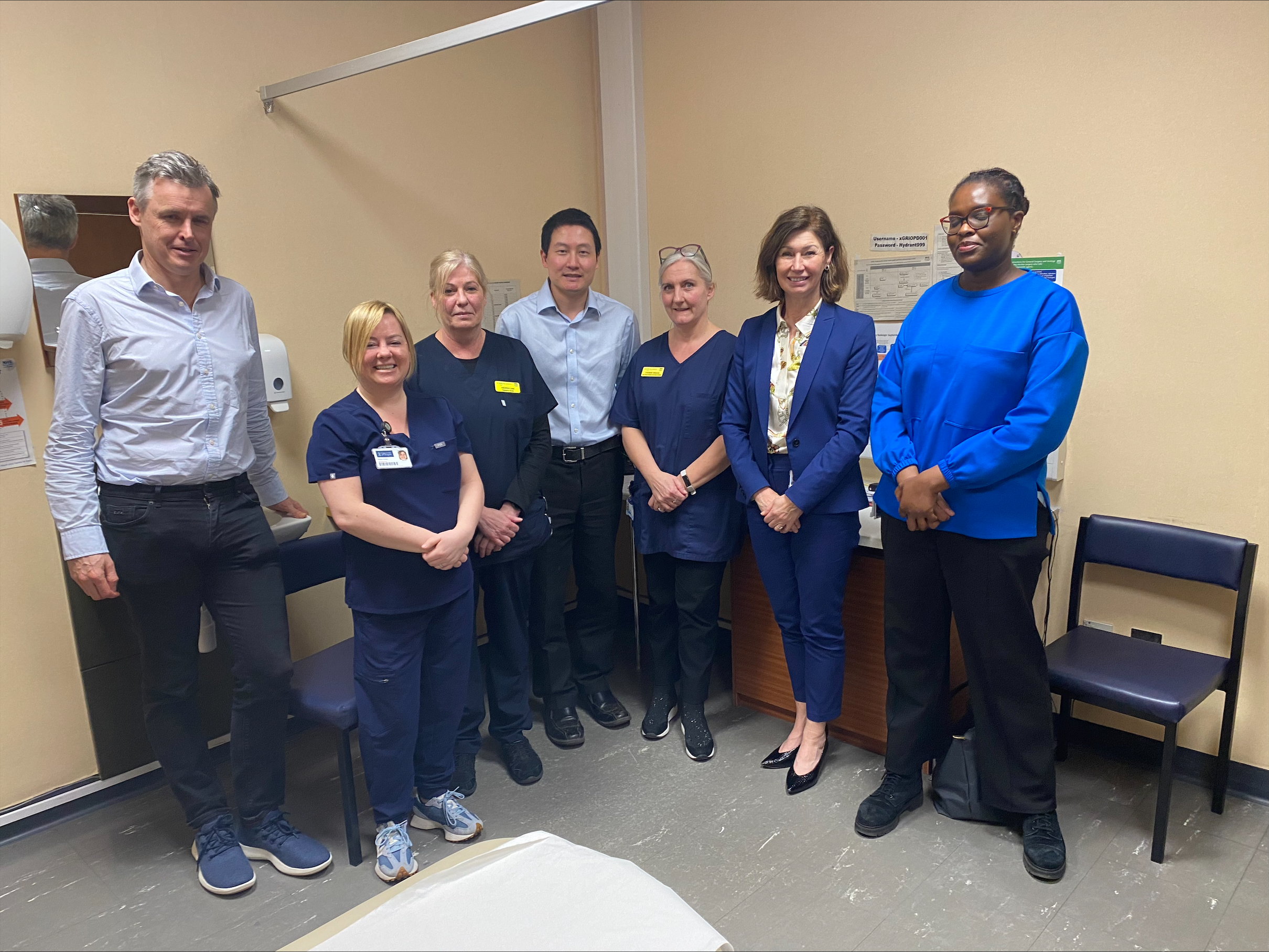Glasgow Royal Infirmary team pioneers “home first” treatment for heart failure

A new “home first” model being used by NHS Greater Glasgow and Clyde to help people with a little-known form of heart failure could become a blueprint for care across Scotland.
Heart failure with preserved ejection fraction – HFpEF – is a life-limiting disease that occurs when the heart is not working as efficiently as it should. This causes symptoms of breathlessness, fatigue and swelling with excess fluid (oedema) which often leads to hospitalisation.
NHS Greater Glasgow and Clyde in partnership with Boehringer Ingelheim UKIE is developing a new “home first” and multidisciplinary team approach to the condition in a bid to address inequality of care as patients with HFpEF often have limited treatment options. The project could benefit up to 4,000 people living with HFpEF in the Greater Glasgow area.
The project – based at Glasgow’s Royal Infirmary – aims to reduce admissions and support early discharge from hospital, as well as provide training for key multi-disciplinary healthcare professionals such as nurses, pharmacists and GPs so that treatment have be given in home or community settings and thus avoid admissions to hospital. The partnership between NHS Greater Glasgow and Clyde and biopharmaceutical company Boehringer Ingelheim UKIE is expected to last for three years.
It will develop, implement and evaluate a comprehensive multidisciplinary heart failure model of care to support patients and their family members who are living with preserved ejection fraction, multiple co-morbidities and complex medical needs within the Glasgow Royal Infirmary and Stobhill Hospital geographical area.
Katriona Brooksbank, R&I Innovation Lead at the West of Scotland Innovation Hub (WoSIH), which is leading on the project for NHSGGC, said: “This project represents a significant opportunity to ensure those who require specialist care are able to access the care they need in a community setting. It builds on our previous work at the West of Scotland Innovation Hub in cardiac treatment and addresses a gap in service provision. This is not just the case in NHS Greater Glasgow and Clyde, so this project will hopefully be able to be scaled up and act as a model that could be adopted by other health boards across the country.”
Dr Karen Hogg, Clinical Lead at NHS Greater Glasgow and Clyde, said: “The collaboration between NHS Greater Glasgow and Clyde and Boehringer Ingelheim is an exciting opportunity for the heart failure team to identify and characterise the group of patients and their carers who often have very debilitating symptoms of heart failure.
“We know this group of patients have frequent and long hospital admissions, impacting on quality of life, as well as a relatively poor prognosis. Despite this, they do not have the same access to heart failure services that other patients do. Characterising their needs, best treatment strategies and developing pathways of care across primary and secondary care will allow us to inform best care for this patient group and potentially impact on the economic burden to the NHS.”
Dr Christoph Zehendner, Medical Director at Boehringer Ingelheim UK and Ireland said: “We have a long history of supporting medical research with the NHS in Glasgow and are excited to now be working together on addressing this high unmet need in heart failure for people living with HFpEF. Ultimately, we all want these patients, and their families, to be able to access the services and support they need across Glasgow, and to see how this can act as a blueprint for NHS services in Scotland, the UK, and other countries.”